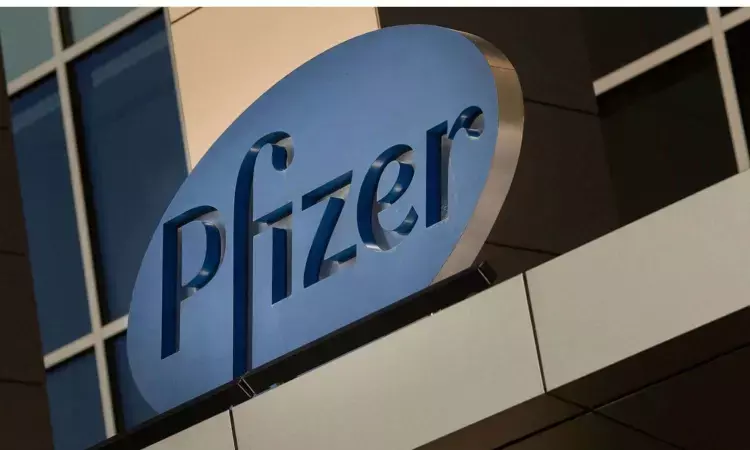- Home
- Medical news & Guidelines
- Anesthesiology
- Cardiology and CTVS
- Critical Care
- Dentistry
- Dermatology
- Diabetes and Endocrinology
- ENT
- Gastroenterology
- Medicine
- Nephrology
- Neurology
- Obstretics-Gynaecology
- Oncology
- Ophthalmology
- Orthopaedics
- Pediatrics-Neonatology
- Psychiatry
- Pulmonology
- Radiology
- Surgery
- Urology
- Laboratory Medicine
- Diet
- Nursing
- Paramedical
- Physiotherapy
- Health news
- Fact Check
- Bone Health Fact Check
- Brain Health Fact Check
- Cancer Related Fact Check
- Child Care Fact Check
- Dental and oral health fact check
- Diabetes and metabolic health fact check
- Diet and Nutrition Fact Check
- Eye and ENT Care Fact Check
- Fitness fact check
- Gut health fact check
- Heart health fact check
- Kidney health fact check
- Medical education fact check
- Men's health fact check
- Respiratory fact check
- Skin and hair care fact check
- Vaccine and Immunization fact check
- Women's health fact check
- AYUSH
- State News
- Andaman and Nicobar Islands
- Andhra Pradesh
- Arunachal Pradesh
- Assam
- Bihar
- Chandigarh
- Chattisgarh
- Dadra and Nagar Haveli
- Daman and Diu
- Delhi
- Goa
- Gujarat
- Haryana
- Himachal Pradesh
- Jammu & Kashmir
- Jharkhand
- Karnataka
- Kerala
- Ladakh
- Lakshadweep
- Madhya Pradesh
- Maharashtra
- Manipur
- Meghalaya
- Mizoram
- Nagaland
- Odisha
- Puducherry
- Punjab
- Rajasthan
- Sikkim
- Tamil Nadu
- Telangana
- Tripura
- Uttar Pradesh
- Uttrakhand
- West Bengal
- Medical Education
- Industry
Pfizer gets European Commission nod for Talzenna, Xtandi combo for prostate cancer

New York: Pfizer Inc. has announced that the European Commission (EC) has approved TALZENNA (talazoparib), an oral poly ADP-ribose polymerase (PARP) inhibitor, in combination with XTANDI (enzalutamide), for the treatment of adult patients with metastatic castration-resistant prostate cancer (mCRPC) in whom chemotherapy is not clinically indicated.
"With this approval, TALZENNA is now the first and only PARP inhibitor licensed in the European Union for use with XTANDI for patients with mCRPC, with or without gene mutations," the Company stated in a release.
“New treatment options are needed to increase the proportion of patients with metastatic castration-resistant prostate cancer who can benefit from current anticancer medicines that keep the disease under control for longer,” said Robert Jones, MBChB, PhD, Professor of Clinical Cancer Research, University of Glasgow. “The European Commission’s approval of talazoparib in combination with enzalutamide offers a meaningful advancement for the treatment of patients with metastatic castration-resistant prostate cancer, the most advanced and aggressive stage of the disease.”
“After years of fighting prostate cancer, it can be devastating for a patient to learn that their cancer has stopped responding to testosterone-lowering treatments. At this stage of the disease, the prognosis is generally poor,” said Erik Briers, MS, PhD, Vice Chairman, Europa UOMO, a European advocacy movement for people with prostate cancer. “Patients urgently need new treatment options and TALZENNA in combination with XTANDI can bring new hope to these patients.”
This approval by the European Commission of TALZENNA in combination with XTANDI for the mCRPC indication is valid in all 27 EU member states plus Iceland, Liechtenstein, and Norway.
The approval is based on data from the Phase 3 TALAPRO-2 trial, a multicenter, randomized, double-blind, placebo-controlled study, evaluating two mCRPC patient cohorts: Cohort 1 (all-comers [n=805]) and Cohort 2 (those with HRR gene mutations [HRRm; n=399]). The results from TALAPRO-2 Cohort 1, which were published in The Lancet showed that treatment with TALZENNA plus XTANDI reduced the risk of disease progression or death by 37% versus placebo plus XTANDI (Hazard Ratio [HR]: 0.63; 95% Confidence Interval [CI], 0.51–0.78; P< 0.0001), meeting the study’s primary endpoint of improving radiographic progression-free survival (rPFS). At the time of the analysis, the median rPFS for those treated with TALZENNA plus XTANDI had not yet been reached versus 21.9 months for those treated with placebo plus XTANDI. Median rPFS is defined as the timepoint in which 50% of patients in each treatment arms have progressed. A trend in overall survival (OS), a key secondary endpoint, favoring TALZENNA plus XTANDI was also observed, though these data are immature. The safety of TALZENNA plus XTANDI in the TALAPRO-2 trial was generally consistent with the known safety profile of each medicine.
“The approval of TALZENNA in combination with XTANDI represents an important advancement for men living with prostate cancer in Europe,” said Chris Boshoff, M.D., Ph.D., Chief Oncology Officer, Executive Vice President, Pfizer. “The results from the pivotal TALAPRO-2 trial showed that this combination offers an effective treatment that addresses disease progression in patients with or without any specific gene mutation.”
TALZENNA in combination with XTANDI was approved by the U.S. Food and Drug Administration (FDA) for the treatment of adult patients with HRR gene-mutated mCRPC in June 2023. Pfizer has also shared the TALAPRO-2 data with other regulatory agencies to support regulatory filings.
Read also: Pfizer gene therapy for bleeding disorder approved in Canada
Ruchika Sharma joined Medical Dialogue as an Correspondent for the Business Section in 2019. She covers all the updates in the Pharmaceutical field, Policy, Insurance, Business Healthcare, Medical News, Health News, Pharma News, Healthcare and Investment. She has completed her B.Com from Delhi University and then pursued postgraduation in M.Com. She can be contacted at editorial@medicaldialogues.in Contact no. 011-43720751
Dr Kamal Kant Kohli-MBBS, DTCD- a chest specialist with more than 30 years of practice and a flair for writing clinical articles, Dr Kamal Kant Kohli joined Medical Dialogues as a Chief Editor of Medical News. Besides writing articles, as an editor, he proofreads and verifies all the medical content published on Medical Dialogues including those coming from journals, studies,medical conferences,guidelines etc. Email: drkohli@medicaldialogues.in. Contact no. 011-43720751


